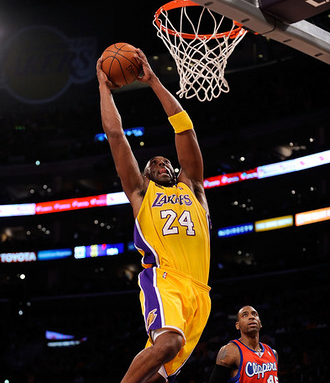Lakers Firing Mike Brown Was Rash, But Understandable

For a front office renowned for its patience, judiciousness and general resistance to rash, quick-fire decisions, this was an unprecedented move. It was a decision that fell in line with the popular sentiment amongst Lakers fans: Mike Brown simply does not fit. The fans’ initial reaction to Brown’s hiring was lukewarm at best, and, after suffering a humbling 4-1 defeat to the Oklahoma City Thunder in the second round of last season’s playoffs, their attitude has definitely not changed for the better.
Mike Brown is not, and has never been, the right coach for this franchise. Furthermore, the circumstances that marked his hiring simply made his job an elongated exercise in futility. He was stepping into the shoes of the great Phil Jackson, the most successful coach of all time. It was an irreplaceable void in which Brown could, at best, approximate adequacy.
Where his predecessor prescribed a unique, singular approach (Zen), Brown preached the mundane and perfunctory (defense). Jackson sported a full head of gray that spoke of wisdom and the toll of hard-earned success; Brown has none but beads of nervous sweat and a quizzical expression that does no favors for a fanbase’s confidence.
The Lakers adopt the "Showtime" moniker for a reason. They are all about flash, spectacle, entertainment, and of course, winning. Brown, a former Popovich disciple, is all about stout defense and grinding out victories. Their styles simply do not mesh.
One of Brown’s most publicized schematic changes was the move from the Triangle offense to the Princeton offense. The Princeton offense -- a system predicated on constant motion, cutting and passing -- is traditionally meant to compensate for a lack of premier talent on the court. With the overwhelming (top-heavy) talent on the Lakers’ roster, it seemingly did not make sense on paper. And it certainly does not make sense on court as well.
Over the first five games, players looked confused and unsure. Often, they got into each other’s spaces and inadvertently clogged the lane, which made it easier for the defense. The Lakers were so slow into getting into their sets that possessions often end up in Bryant’s hands and a dwindling shot clock.

However, it has been a mere five games. It is a small and insignificant sample size in a season so young that the desperation that characterized such a move will merely be highlighted in bold. Many things went wrong for the Lakers during this stretch. But, apart from the Princeton offense, the bulk of the issues has been circumstantial and completely out of Brown’s control.
The Lakers are 23rd in defensive efficiency this season, per Hoopdata.com, an atrocious mark for a contender that was considered the odds-on favorite to win the West. As the reigning Defensive Player of the Year and one of the league’s most mobile big man, Dwight Howard was brought in to shore up the team’s suspect pick-and-roll defense and protect the paint.
However, he is only six months removed from back surgery and is slowly rounding into shape. Howard’s movement and flexibility is still visibly hindered and he has not been able to leap as high for rebounds or hedge as quickly on pick-and-rolls. As such, he has been unable to attain those levels and the fault is not his own – and neither is it Brown’s. Defense is Brown’s forte but he can only do so much with a center who is still recovering from his first major operation.
More importantly, Brown only had the luxury of his All-Star quartet for all of one game – the season opener. During their 116-106 loss to Portland, Steve Nash fractured his fribula and has been sidelined ever since. Five games is too small a sample size to judge the success (or lack thereof) of the team for the entire season.
Likewise, the solitary game in Portland is not representative of Nash’s ceiling in the team’s offense – even if he did look at sea standing in the weakside corner without the ball in his hands. Nash is one of the league’s greatest shooters, and replacing him with Steve Blake clearly affects the Lakers’ spacing on offense. Blake’s primary defender can afford to sag off him and attempt to deny entry passes and make it more difficult for Gasol and Howard to attack from the post; something that will never happen when Nash is on the court.
Injuries to key players, coupled with their typically insipid bench play, presented a situation that Brown failed to successfully deal with, culminating in their 1-4 start to the season. Perhaps the Lakers’ front office saw this coming. Perhaps they knew there was a possibility that midway through the season, if things went sour once again, they would face a similar dilemma. Perhaps they knew that the question marks that surrounded Brown were never going to go away, and they decided that cutting the cord prematurely was their best bet.
All the evidence points to this being a rash decision, not to mention an unfair indictment on Brown’s coaching abilities. Nevertheless, given Brown’s poor fit with the franchise, it could prove a prudent decision.
Especially if they get Phil Jackson back.
Reach Staff Reporter Andrew Seah here.



